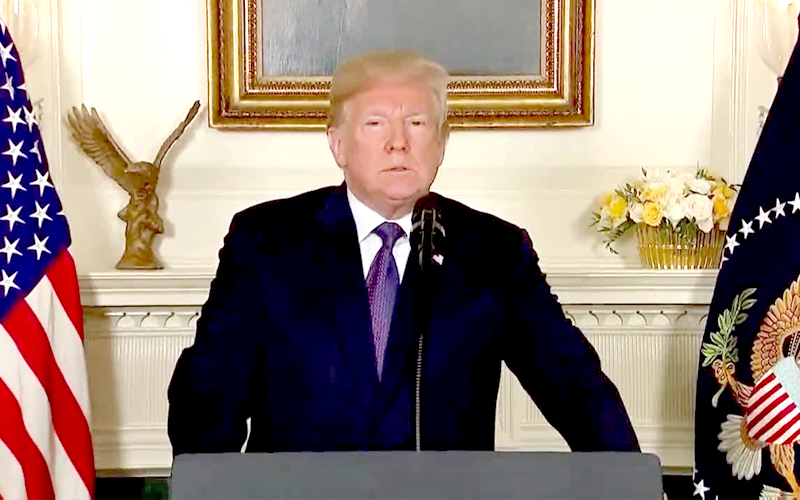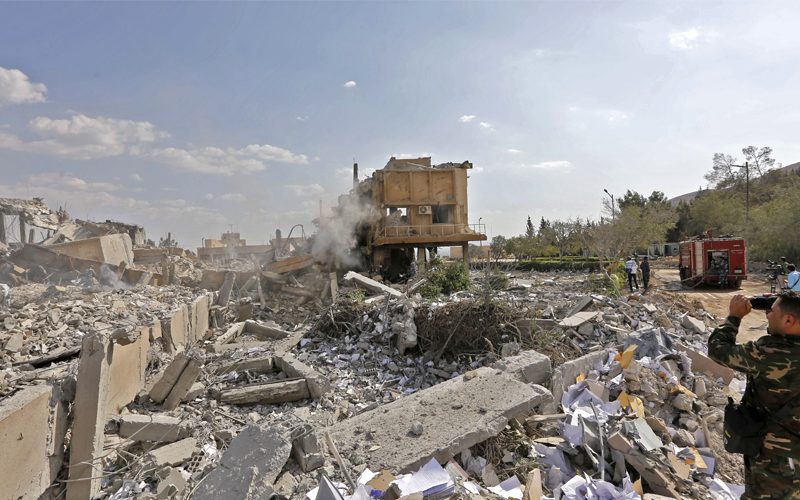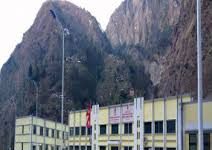16 APR 018. Syrian armed forces on Sunday unleashed airstrikes against rebels and shelled what rescue workers said were civilian homes, as President Bashar al-Assad sought to demonstrate his regime’s continued strength a day after a U.S.-led missile attack.
The American, French and British barrage of missiles on Saturday destroyed much of Syria’s chemical-weapons capabilities, U.S. Defense Department officials said, but left Mr. Assad’s conventional military intact. American officials said the strikes were retaliation for It was over in 70 minutes, and changed nothing, but perhaps also everything. Where is Syria’s war now, after Friday’s US, UK and French airstrikes, launched in response to a suspected chemical attack on the town of Douma.
Syria’s war continues unabated, on the same course. Donald Trump
 US President Donald Trump was clear in his twitter, even as the missiles were launching, that this strike was purely about chemical weapons. Trump did not seek to change the course of the war (neither did his predecessor, really), and he has not. However ghastly and inhumane the current phase of the war, it is all about consolidation — by the regime, and by Syrian-Kurdish and Turkish-backed rebels — over various parts of the country.
US President Donald Trump was clear in his twitter, even as the missiles were launching, that this strike was purely about chemical weapons. Trump did not seek to change the course of the war (neither did his predecessor, really), and he has not. However ghastly and inhumane the current phase of the war, it is all about consolidation — by the regime, and by Syrian-Kurdish and Turkish-backed rebels — over various parts of the country.
Unless Syrian President Bashar al-Assad chooses to try to take more territory, the spate of killing could slow in the months ahead. Any serious intervention by the US and its allies now would only serve to intensify the war, and potentially prolong the rebellion for years. That may deliver a sense of justice to those for whom the rebels fight, but it would leave many more dead and displaced. The West doesn’t want to own the war, so — airstrikes notwithstanding — it may prefer to stay out of it for now.















